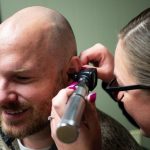Have you ever woken up after a night of drinking and couldn’t remember what happened? That’s because alcohol can cause blackouts, which are temporary memory losses.
Drinking can impact your inhibitions, reactions, speech, and ability to create new memories. During a blackout, you may still be able to function normally, but forming new memories is nearly impossible. When you wake up, it may feel like a chunk of your memory was wiped away.
Have you ever wondered if experiencing blackouts means you have a problem with alcohol? In this article, we’ll take a closer look at the connection between blackouts and alcohol addiction so you can understand the warning signs and get help if you need it.
Understanding Blackouts
It’s important to understand that blackouts are different from passing out. Blackouts occur when you’re conscious but unable to form new memories due to alcohol. Drinking alcohol to the extent that you pass out can lead to additional long-term health issues, including liver damage, cancer, high blood pressure, and brain damage. Additionally, alcohol can have adverse effects on your mental health, such as depression.
Did you know that extreme levels of drinking aren’t the only thing that can cause blackouts?
Factors that could escalate your blood alcohol level and put you at risk include:
- Blackouts include drinking:
- On an empty stomach
- When sleep-deprived
- A lot of alcohol in a short space of time
- Women are more susceptible to blackouts than men (This is because they have a higher percentage of body fat and less water to dilute the alcohol, causing their blood alcohol levels to rise faster).
Here’s a common myth bust: a blackout doesn’t always involve passing out. You can still talk, laugh, sing, and dance and appear to be in control of all your faculties. According to the National Institute on Alcohol Abuse and Alcoholism (NIAAA), blackouts happen when someone drinks significant amounts of alcohol, which impairs memory consolidation. During a blackout, the brain struggles to transfer memories from short to long-term storage, resulting in memory gaps for events that occur when you are awake and conscious.
Are Blackouts a Sign of Alcohol Addiction?
It’s essential to understand that blackouts don’t automatically signify alcoholism. However, if they occur frequently or repeatedly, it could be a red flag for an alcohol use disorder (AUD). Alcohol addiction involves a persistent desire to drink, even when it negatively affects your life. And that’s where blackouts come in. They can indicate heavy and problematic drinking patterns commonly associated with alcohol use disorders.
If you’re drinking regularly, you could be dependent on alcohol. It’s essential to get medical help if you’re experiencing physical withdrawal symptoms such as shaking, sweating, or nausea before you have your first drink of the day. If you have these symptoms, it can be dangerous to stop drinking too quickly without proper support.
Additional signs that you may have an alcohol use disorder (AUD) include:
- Avoiding other commitments to drink more.
- Missing important events or having time off from work because you feel unwell due to alcohol consumption the night before.
- Consuming alcohol in secret.
- Lying about the quantity of alcohol you drink.
If you are building a tolerance to alcohol and enjoy drinking alone or often go out and drink excessively, you may struggle with alcoholism. If any of the above signs and symptoms sound familiar to you, it may be time to seek support for alcohol addiction.
Danielle Byatt, an addiction treatment director at Step by Step Recovery, advised us to remember the following:
“There are numerous forms of treatment for addiction, all of which have unique and distinct processes. As a result, a method that works for others could prove unsuccessful for you. The goal is to identify an addiction treatment rehab centre that takes the time to tailor the treatment you receive to your specific needs, problems and personal requirements by integrating various therapies in an environment where you will feel comfortable.”
Seven Ways To Cut Down on Alcohol Consumption
- The first step is acknowledging and confronting the problem. Be honest with yourself about the impact alcohol has on your life.
- Next, set clear goals to guide your journey. Whether you want to quit altogether or cut back, having specific objectives will motivate and direct you.
- Building a support network is critical — reach out to loved ones and plan activities that don’t involve alcohol.
- Join support groups to connect with people who have had problems with alcohol and can offer you support, understanding, and guidance.
- Identify the triggers that lead you to drink, such as stress or problems at work. Once you understand them, you can develop alternative coping mechanisms and strategies to address underlying issues in a healthier manner.
- Prioritise self-care to reduce stress and improve your overall well being. Try meditation and mindfulness, cooking healthy meals, and going to bed at the same time every day.
- Consider professional help and addiction treatment options, such as counselling, therapy, and residential rehab, where addiction specialists can tailor treatment plans to your specific needs.
Remember, if you have developed an alcohol addiction, you cannot just “cut down” on how much you drink. If you are concerned about your drinking, speaking to someone about it is critical. Below are a few helplines that can provide you with support and advice.
FRANK — Anyone concerned about alcohol or illegal drugs can get confidential information, advice, and help to find local addiction treatment services.
You can also use the search tool on the FRANK website to find information about addiction services that offer counselling and treatment.
0300 123 6600 (24 hours a day, 7 days a week)
Drinkchat — A free online chat service for anyone seeking information or help about their alcohol use or another person.
Drinkchat operates from 9 am to 2 pm, Monday to Friday.
Drinkline — Anyone who feels worried about their or someone else’s drinking can call this confidential helpline for guidance and advice.
0300 123 1110 (weekdays 9 am to 8 pm, Monday to Friday, or 11 am to 4 pm Saturday and Sunday)















